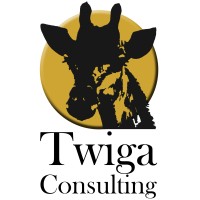Digital Transformation in South Africa: Where Businesses Are Getting It Right (and Wrong)
Across South Africa, digital transformation has shifted from being a “nice-to-have” to a business necessity. Companies are investing in new technologies, automation, and data-driven strategies to improve efficiency and stay competitive. But while some organizations are reaping significant rewards, others are struggling with stalled projects, poor adoption, and compliance risks. Understanding both the successes and the common pitfalls of digital transformation in 2024–2025 can help businesses make smarter choices going forward.
Where Businesses Are Getting It Right
Adopting Cloud and Hybrid Work Models
By 2025, South African companies are increasingly moving HR, payroll, and finance systems to the cloud. Businesses like banks, fintech startups, and professional services firms are reporting higher productivity and employee satisfaction thanks to flexible hybrid work policies. Cloud adoption also enables real-time reporting and remote collaboration, a critical factor in South Africa’s geographically dispersed workforce.
Prioritizing Cybersecurity
Cybersecurity threats in South Africa are growing, with ransomware and data breaches making headlines. Companies that invest in robust cybersecurity frameworks, including multi-factor authentication, secure cloud storage, and regular staff training are not just protecting data but building customer confidence and trust. Cybersecurity is now seen as a competitive advantage, not just a compliance checkbox.
Customer-Centric Digital Strategies
South African businesses are leveraging AI, predictive analytics, and automated customer support to enhance service delivery. Retail, telecoms, and financial services sectors are using digital insights to anticipate customer needs, reduce response times, and personalize experiences. Organizations that prioritize the customer journey are seeing stronger loyalty and revenue growth.
Where Businesses Are Getting It Wrong
Fragmented Systems and Poor Integration
Many South African companies still operate with siloed HR, payroll, and finance systems. This fragmentation slows decision-making, increases administrative errors, and costs businesses both time and money. Organizations that fail to integrate platforms risk losing the full potential of digital investment.
Change Management Gaps
A common reason digital initiatives fail is employee resistance. Without a strong change management strategy, including training, clear communication, and leadership support employees often underuse or ignore new systems, limiting ROI.
Overlooking Compliance
POPIA (data protection), B-BBEE, and labour law compliance have become critical in 2025 as regulators increase scrutiny. Failing to build these requirements into digital strategies exposes companies to fines, reputational damage, and operational delays.
Short-Term Focus
Some businesses rush digital projects to achieve immediate results but lack a clear roadmap for scaling. Without long-term planning, technology investments fail to deliver sustainable value, leaving companies behind competitors that prioritize strategic transformation.
Practical Steps for Smarter Digital Transformation
- Integrate Systems: Connect HR, payroll, and finance platforms for seamless data flow and better decision-making.
- Invest in People: Provide training and communicate the reasons behind change—help employees feel part of the journey.
- Embed Compliance Early: Consider POPIA, B-BBEE, and labour law requirements from day one, not as an afterthought.
- Plan for Scalability: Develop roadmaps that accommodate current needs while preparing for growth and future tech adoption.
Digital transformation in South Africa offers huge opportunities, but also clear risks. Companies that balance technology adoption with integration, compliance, and strong change management are setting themselves up for long-term success. At Twiga Consulting, we help businesses design digital strategies that not only work today but also adapt to tomorrow.
The insights shared in this article are based on recent industry trends and analyses from leading sources, including PwC South Africa Digital Outlook (2025), Deloitte Africa Digital Transformation Report (2024), BusinessTech Digital Trends (2025), McKinsey Digital South Africa (2024), Gartner CIO Agenda (2025).

